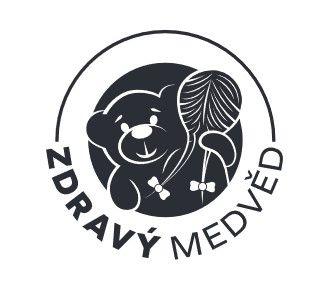Vitamin A
Synonyms: retinol, retinoic acid
Characteristics: Vitamin A is the name of a group of fat-soluble retinoids, mainly retinol and retinyl esters. Vitamin A is involved in immune function, cellular communication, growth, development, and male and female reproduction. It is important for vision as an essential component of rhodopsin, a light-sensitive protein in the retina, and because it supports the normal differentiation and functioning of the conjunctival membranes and cornea. Vitamin A also has antioxidant properties (note that antioxidants are substances that can protect cells from the effects of free radicals – molecules produced during breathing, digestion, smoking or radiation. Free radicals can play a role in heart disease, cancer, and other diseases). The human diet contains two sources of vitamin A: preformed vitamin A (retinol and retinyl esters) and provitamin A carotenoids. Preformed vitamin A is found in foods from animal sources, including dairy products, eggs, fish, and offal. Provitamin A carotenoids are plant pigments that the body converts to vitamin A in the gut. The main carotenoids of provitamin A in the human diet are beta-carotene, alpha-carotene and beta-cryptoxanthin. Other carotenoids such as lycopene, lutein and zeaxanthin are not converted to vitamin A, but may have other important functions (e.g. antioxidant activity).
Absorption: The various forms of vitamin A are solubilized (dissolved) into micelles in the intestinal lumen and absorbed by the cells of the duodenal mucosa. Retinyl esters and provitamin A carotenoids are converted to retinol after absorption. Retinol is then oxidized to retinal and retinoic acid, the two main active metabolites of vitamin A in the body. Most of the vitamin A in the body is stored in the liver in the form of retinyl esters (80‒90%).
Dietary supplements: Vitamin A is available alone or in multivitamins, often in the form of retinyl acetate, retinyl palmitate, provitamin A beta-carotene, or in combination. The amount of vitamin A in dietary supplements varies widely, commonly containing 3,000 µg RAE (333% of the daily value). Multivitamins usually contain a slightly lower amount, often 750‒1,050 µg RAE (83‒117% DD). Absorption of vitamin A esters from dietary supplements is 70-90% and beta-carotene ranges from 9-65%.
Natural sources: The highest amount of vitamin A can be found in liver, fish, eggs and dairy products. Most dietary provitamin A comes from green leafy vegetables, orange and yellow vegetables, tomato products, fruits, and some vegetable oils. Vitamin A is commonly added to some foods, including milk and margarine. Some cereals are also fortified with vitamin A. The body can absorb up to 75‒100% of retinol and in most cases 10‒30% of beta-carotene from food. Cooking and heat treatment can increase the bioavailability of beta-carotene from foods.
Effect: Recommended orally in malnourished people or conditions that require increased intake of vitamin A (pancreatic disease, eye disease and measles). In the form of creams, it helps to improve fine wrinkles, pigment spots and is also used to treat acne.
Deficiency: Vitamin A deficiency is still common in many developing countries, often due to limited access to foods containing vitamin A from animal sources and to foods containing provitamin A carotenoids due to poverty or traditional diets. The most common clinical symptom of vitamin A deficiency is xerophthalmia (drying of the conjunctiva and cornea of the eye). The first symptom is night blindness, or the inability to see in low light or darkness due to low levels of rhodopsin in the retina. Xerophthalmia can eventually lead to permanent blindness. Chronic vitamin A deficiency is associated with abnormal lung development, respiratory diseases (such as pneumonia), and an increased risk of anemia and death from infections. Premature infants are at risk, as they have low liver stores of vitamin A at birth and their plasma retinol concentrations often remain low throughout the first year of life. Also, people with cystic fibrosis, who suffer from insufficient function of the pancreas and thus have difficulty absorbing fat. About a quarter of children with Crohn's disease and ulcerative colitis are vitamin A deficient.
Recommended daily dose: adult: 900 µg (retinol activity equivalent=RAE) for men, 770 µg for women (770 µg during pregnancy, 1300 µg during breastfeeding).
Adverse effects: Since vitamin A is fat-soluble, the body stores excess amounts primarily in the liver. More than 200,000 µg (even a single dose) can cause: nausea, vomiting, dizziness, blurred vision. More than 10,000 µg per day in the long term can cause: bone thinning, headaches, diarrhea, nausea, skin irritation and dryness, joint and bone pain, birth defects. The most common effect of long-term excessive beta-carotene use is carotenoderma, a harmless condition in which the skin turns yellow orange. This condition can be reversed by discontinuing beta-carotene intake.
Interactions: In combination with anticoagulants (blood thinners), it can cause increased bleeding. Bexarotene (an anticancer drug) increases the risk of side effects of the drug: itching, dry skin. Together with hepatotoxic (liver-damaging) drugs and alcohol, do not exceed the dosage. The weight loss drug orlistat can reduce the absorption of vitamin A. Retinoids (used in dermatology) increase the risk of high vitamin A levels.
Pregnancy: Total intake of vitamin A that exceeds recommended doses, as well as some retinoid drugs used as topical therapy for acne and psoriasis, can cause birth defects that can include malformations of the eye, skull, lungs, and heart. Experts advise pregnant and breastfeeding women not to take high doses (more than 3,000 µg RAE [10,000 IU] per day). Beta-carotene is not teratogenic and does not lead to reproductive toxicity.
Breastfeeding: The recommended daily dose is 1300 µg.
Warning: Due to its solubility, it is recommended to be taken with (fatty) food.
Toxicity: Acute intoxication has occurred in adults when arctic explorers have eaten the liver of polar bears or seals, which contain several million units of vitamin A.
Vitamin A
Chat with us on WhatsApp



